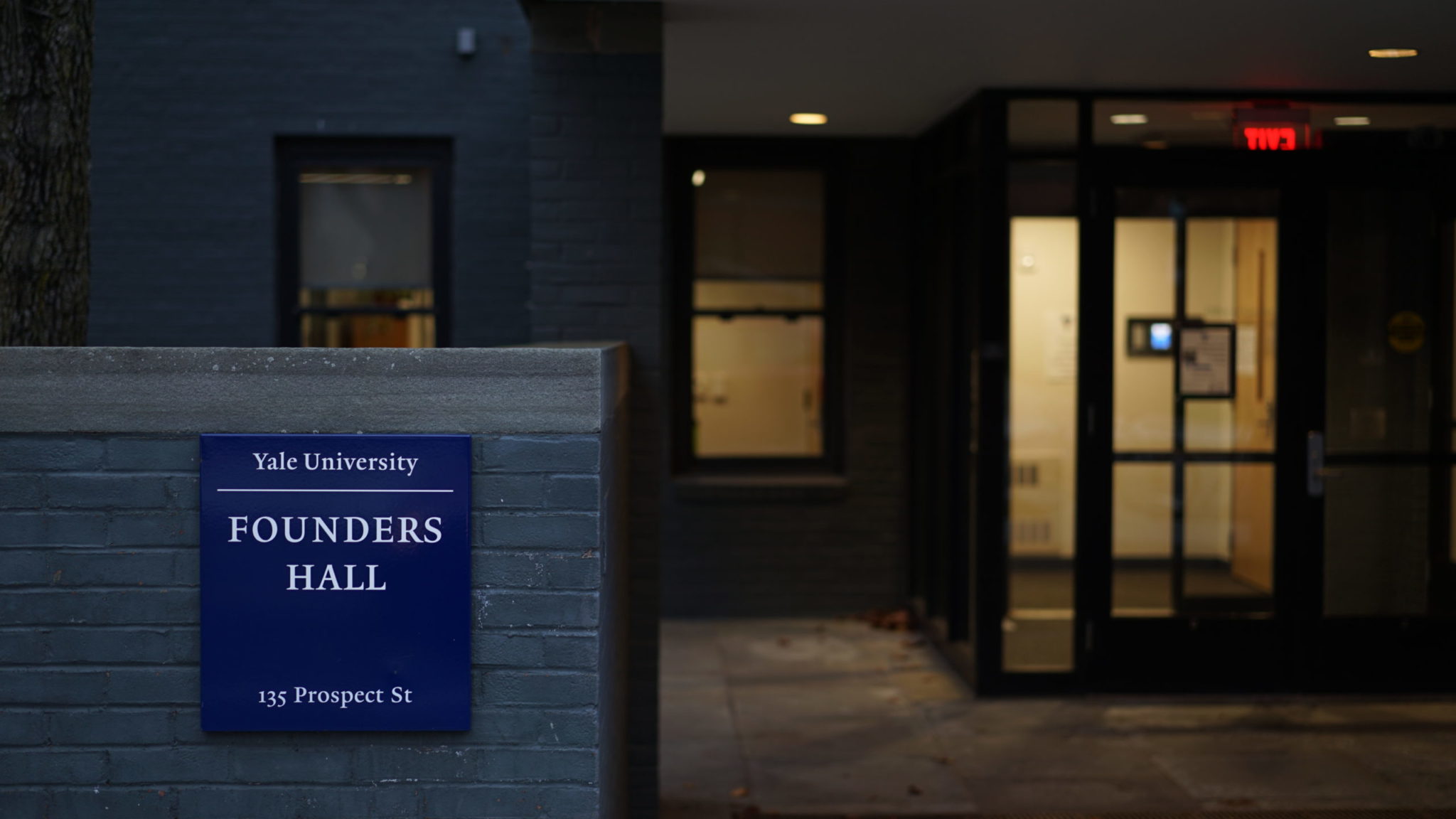Office of LGBTQ Resources prepares for director turnover
Samuel Byrd will assume the directorship on Dec. 1, taking over for founding director Maria Trumpler.

Ling Gao, Contributing Photographer
Maria Trumpler GRD ’92, founding director of the Office of LGBTQ Resources, will retire on Dec. 1 and turn the position over to Yale newcomer Samuel Byrd.
Trumpler has led the Office since it opened in 2005 and will formally leave on Jan. 1, 2022, after a month spent helping facilitate the transition. Also a professor of Women’s, Gender and Sexuality Studies, Trumpler plans to continue teaching for another year before retiring fully from Yale.
Byrd, who uses any pronouns, has previously worked in LGBTQ campus life at North Carolina State University, the University of California, Berkeley and California Polytechnic State University. Byrd plans to prioritize intersectionality and partnerships with other campus organizations as they begin their tenure.
“At the forefront of my mind is developing ways to continue to support mental health and wellbeing by promoting queer joy, centering the most marginalized members of our community within our work and advocacy and serving as a strategic partner for intersectional justice by building key partnerships with other cultural centers and social justice organizations on and off campus,” Byrd said.
The turnover comes in the wake of a tumultuous year for the office. Associate Director Andrew Dowe ’08, GRD ’20 died unexpectedly in February 2021, and later that month, two community events hosted by the office — one held to honor Dowe and one to uplift Black transgender storytelling — were subject to hateful “Zoom-bombing” attacks.
Trumpler explained that she and Dowe had worked collaboratively to develop the Office for 10 years, and that her hope had been for him to assume the position of director after her retirement.
After Dowe’s death, Trumpler decided to step back from the search for a new director.
“It took everything I had to try and support and hold our community together in our common loss,” Trumpler said. “I sort of said, ‘Someone else needs to take this on. It’s in really good shape, but someone else needs to bring their energy and their enthusiasm and their ideas for this project.’ I was just kind of exhausted and sad.”
According to Elizabeth Conklin, the University’s associate vice president for institutional equity, access and belonging, a committee of seven faculty members began the process of hiring a new director early this June.
Conklin added that throughout the search process, those involved hoped to find someone who would serve as a leader in “community building, advocacy, outreach and education.”
“It was particularly important for our next director to have in-depth knowledge of and commitment to supporting and advocating for the LGBTQ+ community,” Conklin wrote in an email to the News. “They also needed to demonstrate experience and ability to collaborate effectively with a broad and diverse range of campus stakeholders.”
Conklin, who described Byrd as an “experienced, thoughtful, highly engaged leader,” said that they were well-equipped to begin leading the Office.
Byrd, who is originally from North Carolina, has worked for the past 12 years as a gender and sexuality educator, consultant and national-board certified counselor. During that time, they also served as an interfaith chaplain, public school teacher, activist and college lecturer and counselor.
“I became involved in this field by learning to navigate rural Appalachian communities with few resources, always feeling like a person who lives in the marginal spaces of identities that always did not fit together neatly,” Byrd said. “In college, I found myself drawn to people in underrepresented communities and to liberation work, discovering my calling for this field and numerous queer and trans mentors who have guided me on this journey. So now, whether in the halls of Vatican City, Moral Marches on state capitals, lobbying congress or in the classroom, I advocate for social transformation and an ethic of radical love.”
Byrd also emphasized the importance of intersectionality to their work, adding that the development of “multicultural humility” is central to expanding equity and inclusion.
In the long-term, Byrd said that they hope to increase queer leadership and visibility on campus, conduct a benchmark assessment to align the Office with other peer institutions, and connect the Office to a broader network of LGBTQ resources through the Consortium of Higher Education LGBTQ Resource Professionals and Centerlink: The Community of LGBTQ Centers.
According to Conklin, Trumpler will work with Byrd during their first few weeks on campus, remaining available as a resource and mentor as she transitions away from the Office next year.
Trumpler said that she is “really proud” of the work she has done to develop the Office into a community resource during her time as director.
“We went from zero to something really nice,” Trumpler said. “There was literally nothing — not a person, not a space, not a pile of money, nothing.”
Since then, Trumpler said, the Office has developed into a “beautiful” space, and a place to bring together staff, faculty, students and alumni.
Byrd echoed Trumpler’s sentiment, emphasizing the importance of campus spaces dedicated to LGBTQ life.
“Queer spaces developed out of a need for safer meeting places for LGBTQ folks to be able to come together, organize, and socialize without fear of abuse, ridicule, or violence,” Byrd said. “It is a place to learn about queer history and underrepresented identities, which are often not taught in our communities of origin and a place to resist together those messages from dominant culture that aim to erase, silence or push to the margins the lives and contributions of our people.”
The Office of LGBTQ Resources is located at 135 Prospect Street.







